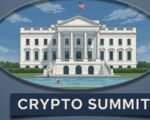SAMA orders recovery of mispaid incentives as bank pledges reforms and independent oversight
Saudi Arabia’s central bank has fined Banque Saudi Fransi after uncovering irregularities in its employee incentive scheme, a regulatory rebuke that’s put a spotlight on corporate governance at one of the kingdom’s oldest financial institutions.
The Saudi Arabian Monetary Authority, or SAMA, said it reviewed an internal investigation and found breaches tied to the bank’s employee bonus program. The scheme has since been shut down, and the bank is now preparing to recover funds through legal channels.
The fallout comes as regulators in the kingdom increase scrutiny of compliance and risk management practices across the financial sector. While Saudi Fransi’s board says the financial impact is limited, the incident has stirred questions over oversight and controls in place during the years the incentive scheme was active.
Court recovery and a closed program
The central bank didn’t hold back. It confirmed that violations occurred and that court action may be necessary to retrieve the misallocated funds. The exact size of the bonus payments under scrutiny hasn’t been made public.
SAMA also said it had previously met with the bank’s board. During that period, Banque Saudi Fransi brought in an independent team to investigate.

In its findings, the board determined violations had occurred, leading to SAMA’s penalty decision.
The incentive program is now officially shut down. And the bank says it’s serious about preventing repeat incidents.
The bank responds—but without all the details
In a regulatory filing with Tadawul, the Saudi stock exchange, Saudi Fransi said it has already accounted for the funds tied to the employee bonus plan in previous financial statements.
The statement was clear, but cautious. The board doesn’t expect “any significant changes” in the bank’s financial reports going forward. But it did not disclose how much was involved or how many individuals might be required to repay bonuses.
One sentence said a lot: “All amounts paid under the employee incentive programme in past years have been calculated in the financial statements.”
SAMA flexes its muscles
Over the last few years, SAMA has sharpened its focus on internal governance, auditing, and ethical conduct within banks. The regulator has emphasized stronger compliance and transparency—particularly when it comes to executive pay and employee perks.
This case, according to analysts, fits right into that narrative.
Here’s a quick rundown of recent banking governance actions from SAMA:
-
In 2024, two mid-sized lenders were sanctioned over lending documentation gaps.
-
Earlier this year, a senior executive at another bank was suspended over conflict of interest concerns.
-
The regulator has also proposed tighter controls on incentive-based compensation, mirroring global post-2008 reforms.
Banks in the Gulf are now under pressure to align with evolving expectations from both regulators and investors.
Behind the numbers: No impact on stability—for now
Banque Saudi Fransi emphasized the issue is not expected to materially affect its balance sheet. But questions remain about how long the incentive plan operated, and whether other violations could come to light.
Here’s a snapshot of the bank’s recent financial posture:
| Metric | Value (Q3 2025) |
|---|---|
| Total Assets | SAR 255 billion |
| Net Profit | SAR 3.8 billion |
| Return on Equity (ROE) | 12.4% |
| Tier 1 Capital Ratio | 17.2% |
While strong on paper, investor confidence is sensitive to any indication of weak controls—especially at a time when the global financial system is hyper-focused on integrity and trust.
The timing couldn’t be worse—or maybe it’s perfect
Oddly enough, the fine lands just as Banque Saudi Fransi finds itself in the middle of a strategic shakeup. Kingdom Holding, the investment firm backed by Prince Alwaleed bin Talal, has announced plans to acquire a 16.2% stake in the bank.
Some analysts say the timing of the enforcement may actually work in Saudi Fransi’s favor—clearing the decks just as new investors come onboard.
Others see it differently. “It raises due diligence concerns,” one Jeddah-based financial consultant told us. “You’d want to be sure all internal risks are fully surfaced before you take on a significant shareholding.”
Either way, the message from the regulator is crystal clear: financial institutions are being watched, and accountability isn’t optional.








